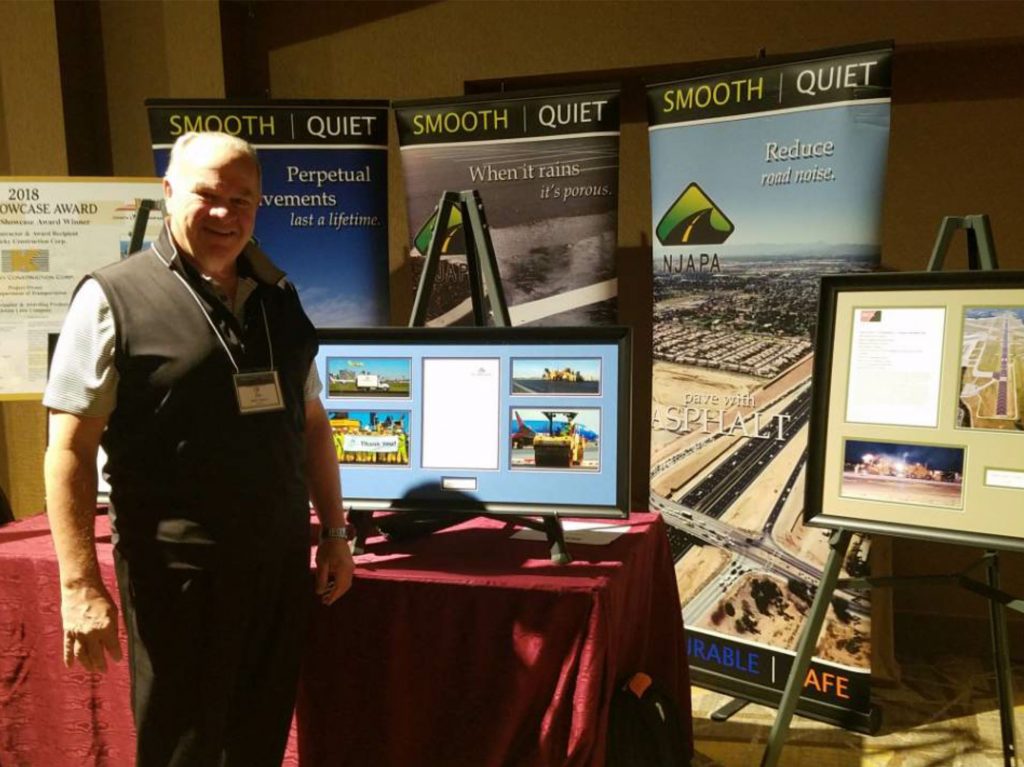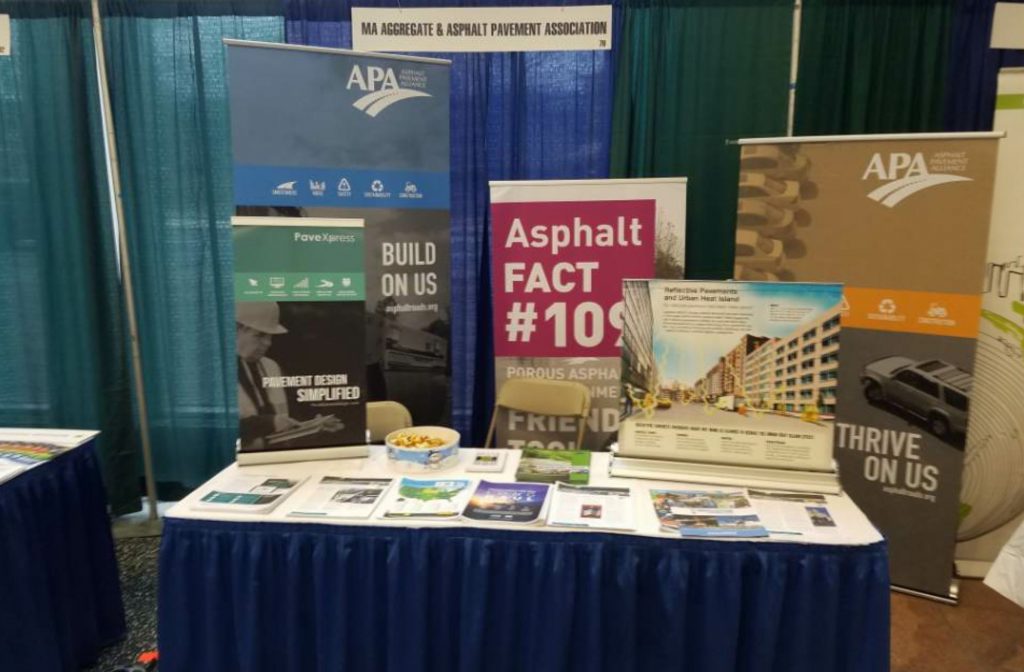Massachusetts Aggregate and Asphalt Pavement Association’s Jim Reger
BY AsphaltPro Staff

The Massachusetts Aggregate and Asphalt Pavement Association (MAAPA), Norwood, was first formed in 1935. Now, the association includes 16 producer members, representing roughly 90 percent of the asphalt tons produced in the state, as well as 42 associate members.
James (Jim) Reger has been MAAPA’s executive director for four years, and has 34 years of experience in the asphalt industry.
AsphaltPro spent time getting to know Reger and learning how MAAPA promotes the asphalt industry in the state of Massachusetts.
What are the top two or three ways you have increased membership in the association?
I solicit potential names of companies from my producer members twice a year. I try to have a fun variety of meetings, social events and golf outings to make it worth joining.

James (Jim) Reger
What is your favorite method for recruiting new asphalt professionals to the industry in general?
I speak at various colleges and try to encourage internships at member operations. I have had a number of people come into the industry and begin very successful careers after internships.
In what month do you hold your annual meeting?
Our annual meeting is held in October or November.
What other activities does the state association hold for members as fundraising events?
We have two dinner meetings a year and a golf tournament in September. Any funds raised at these events are given to a charitable cause.
Do you have a staff that assists in preparing the annual meeting?
No, it is a one-man show!
About how many member asphalt projects do you visit per year/paving season?
I visit between four and five member asphalt projects every year.
About how many member asphalt plant tours do you assist/are you a part of per year?
If invited, I attend one or two asphalt plant tours each year.
About how many member asphalt open house events do you attend per year?
All, if invited.
About how many state agency or DOT meetings do you attend per year?
30
On a scale of 1 to 5 (1 being none at all; 5 being very much), how much of a threat to your members’ market share /livelihood is the concrete industry in your state?
Currently one, but they have filed legislation that could make it a four. They are sending bills to local legislatures asking for Life Cycle Cost Analysis to be done on all projects with more than $1 million in paving. Most DOTs do some form of this, but this [bill would make] it mandatory. Despite the costs of doing an LCCA, the concrete pavement people think they can force a DOT to use concrete by playing with the numbers in an LCCA. They make the claim that there isn’t enough solid information on concrete pavement in Massachusetts so therefore to build a history they want the mandate that MassDOT build four projects a year for the next 10 years so they can see how concrete does in the field. Fortunately there have been enough bad results from concrete in the field that the state DOT knows what to expect. Most concrete pavement in the state has been rubblized and repaved with HMA. This is the second time this bill has been filed and we work to oppose this on a daily basis.
On a scale of 1 to 5 (1 being none at all; 5 being very much), how much difficulty are your members having in finding qualified workers for their asphalt paving or production crews?
Four. Most of the companies are union and they work with their locals for employees, yet it is still very difficult to get and retain qualified workers.
Could you give an example of a way your association assists members with workforce development?
We are currently the sponsor of an apprentice program for quality control. We also are donating a full QC lab to a local community college and supporting their “pre-apprentice” program for quality control technicians.

Jim Reger has been the executive director of MAAPA for four years, with 34 years of experience in the asphalt industry.
On a scale of 1 to 5 (1 being none at all; 5 being very much), how involved are your state elected officials in transportation issues such as funding and infrastructure improvements?
The transportation committee is highly involved (five); the rest of the legislature is probably a three. There is a big issue regarding mass transit and congested roadways in the state and everyone is aware of the issues.
On a scale of 1 to 5 (1 being none at all; 5 being very much), how involved are your asphalt members in transportation issues such as funding and infrastructure improvements?
Three. Most of the effort with the legislature is done by myself representing the industry. Some key members of the board do get directly involved in our lobby efforts.
Could you share an example of a time when your state association hosted elected officials to educate them on the need for highway funding, asphalt materials, construction workforce development, etc.?
We do not host this type of event but we do attend if a member company is hosting. I spend approximately 40 days a year with the legislature talking about funding, asphalt and workforce development.

Get to Know Jim Reger
Why (or how) did you join the asphalt industry?
In 1985, I was in the cement industry and one of my customers suggested that I talk with them about joining their asphalt division. I made the switch and concentrated on paving, estimating and sales. I eventually rose to president of the company. I retired in 2011 and eventually joined MAAPA in 2014 as executive director.
What do you see as the most important part of your job as an executive director of a state association?
The most important part of my job is working as a problem solver for the industry.
What is the most challenging part of your job, and why do you think it’s a challenge in your state?
It’s a challenge to try to get a sense of urgency from my members as to the future issues that will confront us. When business is good, everyone is running their operations and not looking down the road at potential problems.
What do you find most enjoyable about your job as an executive director of a state association?
I like dealing with construction people. I find the men and women in this industry are great people—the kind I like working with. I suppose it comes from working my way up inside a contracting company. I got to see and interact with all levels of personnel and I developed a real feeling for how hard they work and how proud they are of the work they do.
What has been the most rewarding experience for you during your time as the executive director?
Being asked to help my SAPA partners understand some of the details of how contractors bid on projects. I enjoy sharing my knowledge to help others improve.
Do you have a degree related to the industry?
I have a BA in economics from St. Lawrence University and an MBA in management from Southern New Hampshire University.
